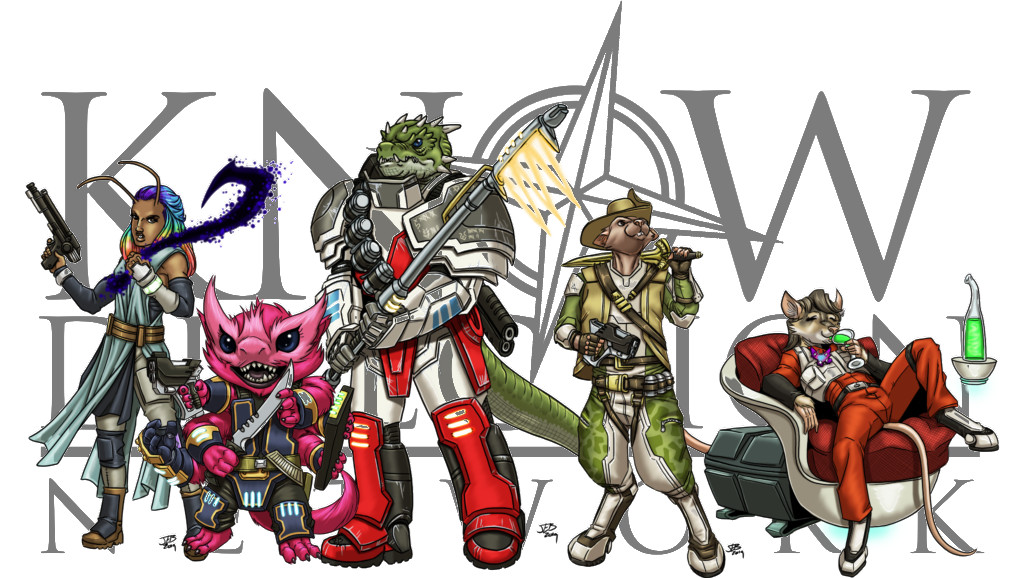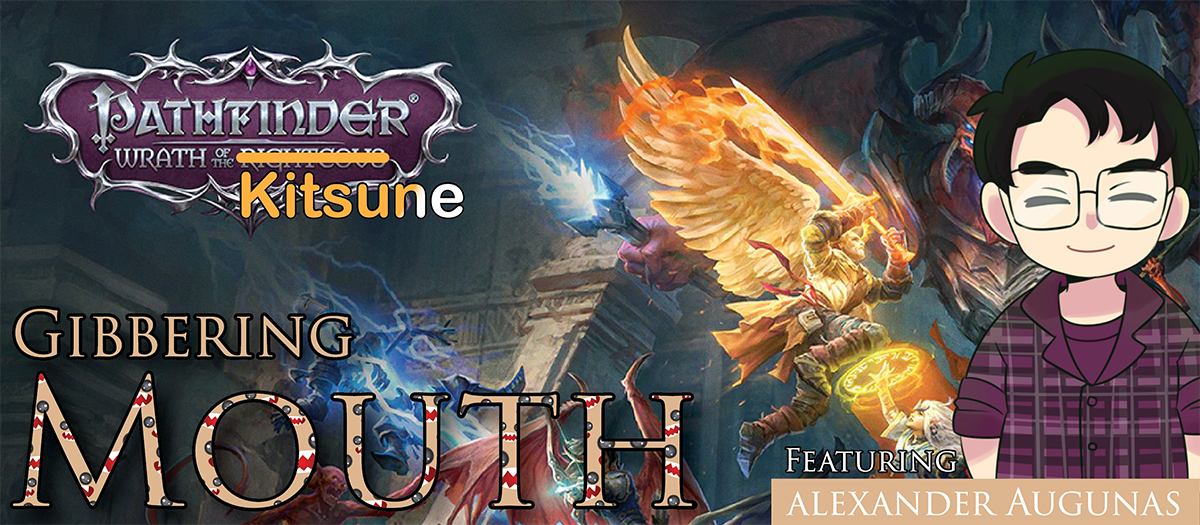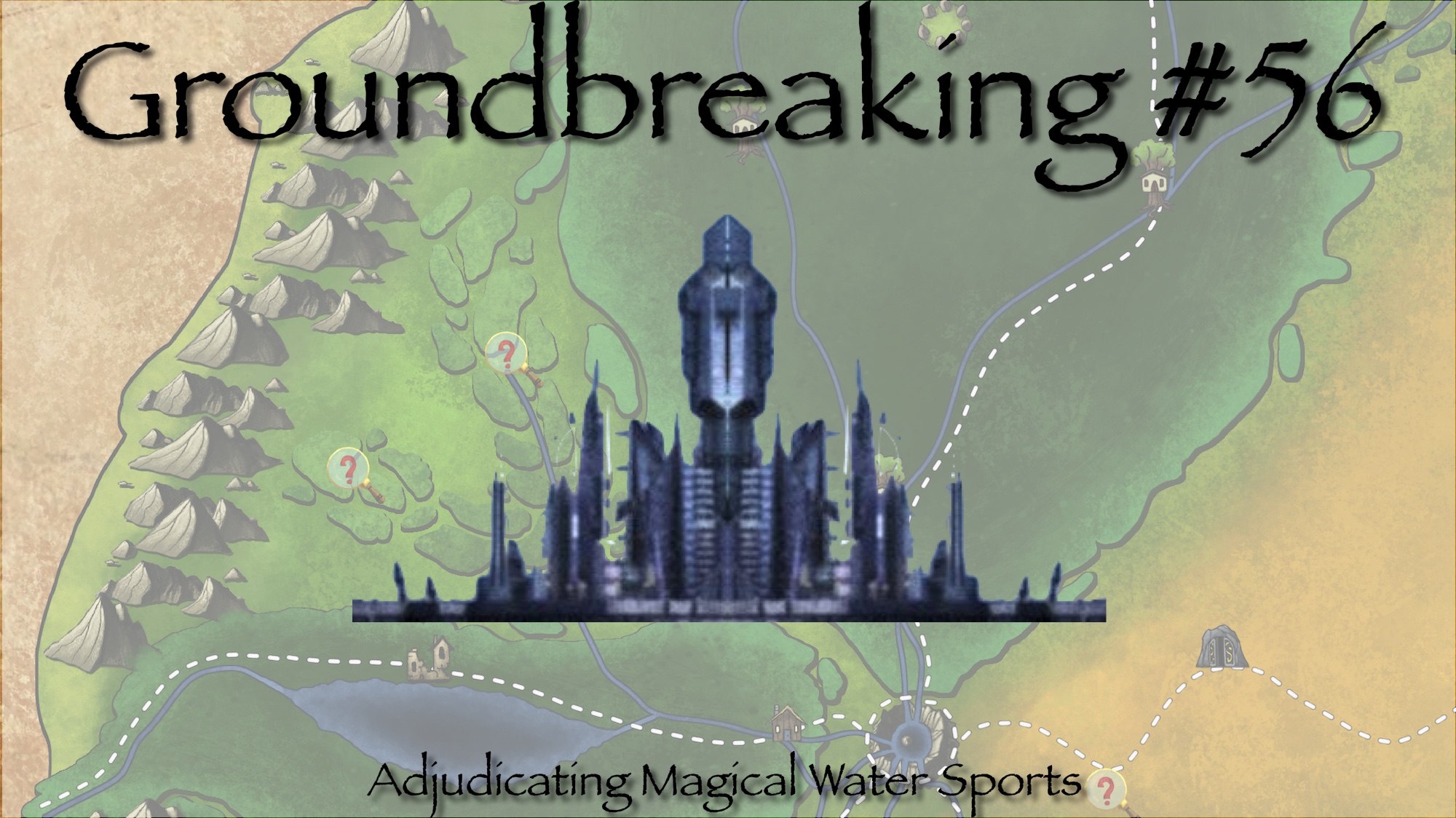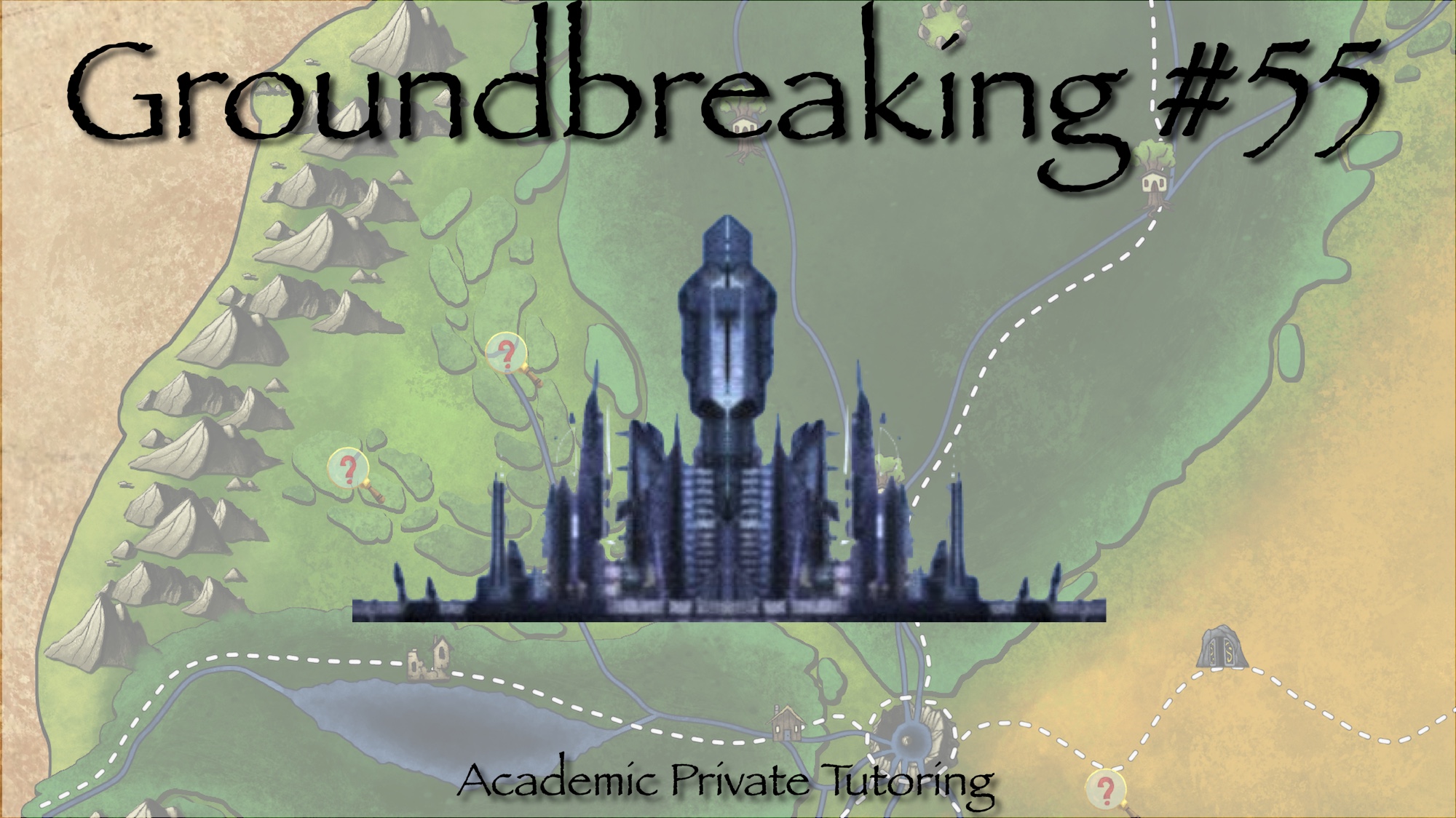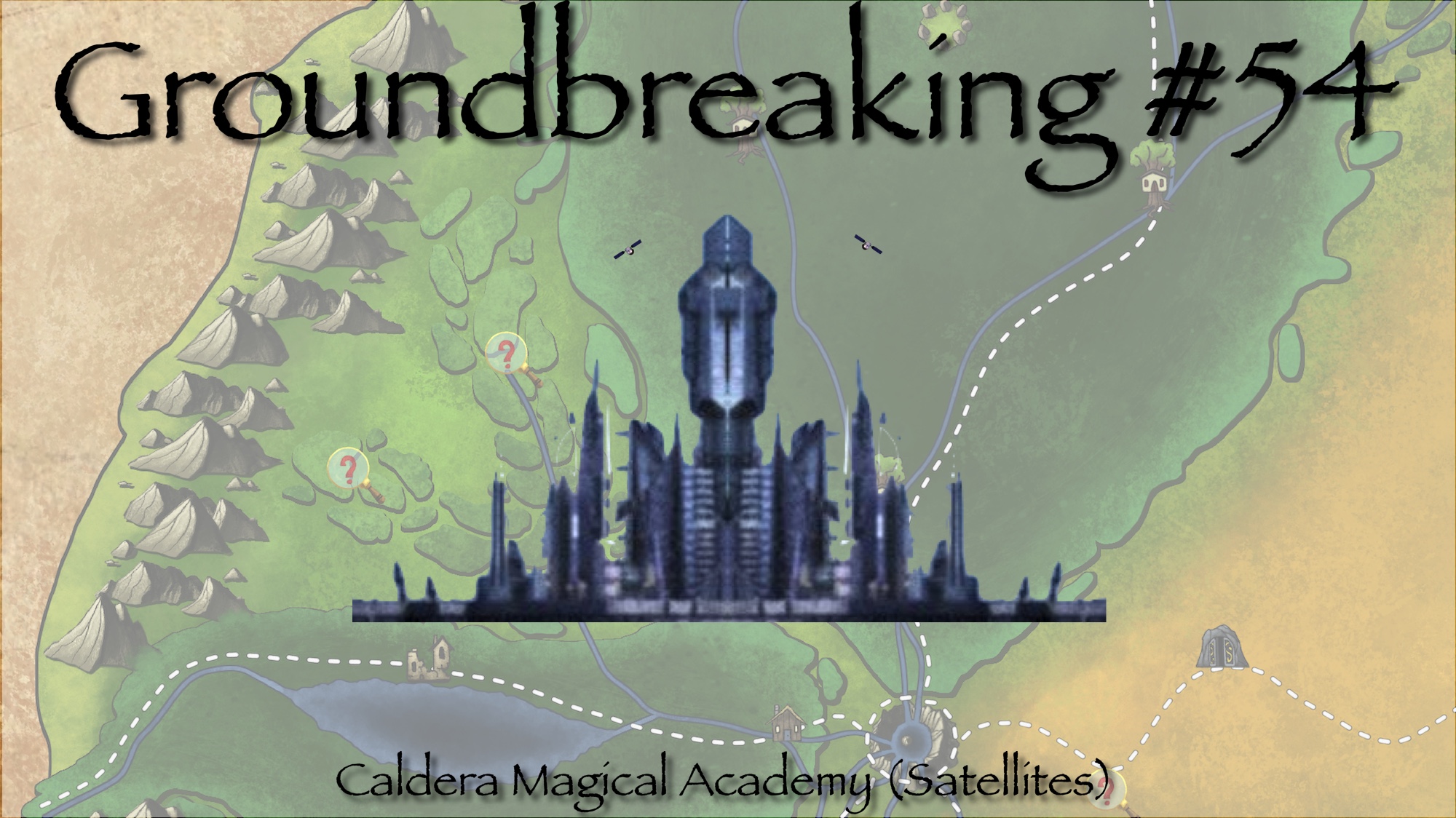Groundbreaking is meant to be a world building experience, and I like to think I have been providing a lot of different ideas and concepts, often from randomly (and possibly radically) different angles and directions. Sometimes they flow together from one to the other, sometimes they are completely unrelated, and sometimes they are late and thrown together because I either was busy or just couldn’t come up with a topic. Take heart fellow and future GMs, that is what world building is all about for all of us! (Let’s just assume I speak for all world builders for the sake of my sanity.)
I’m Randal, and welcome to this week’s Groundbreaking. While thinking about a topic for this week, I tried going through the list of things I had already written to see if there was anything else I wanted to follow up on or expand (or left hanging), and then I realized that I could simply look at my Lost Omens books for topics/ideas that I could cover for this setting. It didn’t take long before I realized I haven’t come up with any cool archetypes, which made me realize I haven’t really covered much about where you would even find the various classes roaming around the region.
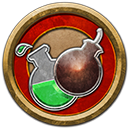 Alchemist Every city and town in the region has at least one alchemist shop, and each city is likely to have at least a small guild. Many settlements likely have somebody at least familiar with alchemy, quite likely working with or as another commonly needed tradesperson, like a blacksmith. As far as research fields are concerned, bombers are generally found where they will get into less trouble, such as the desert. Chirurgeons are welcome in most cities, but sometimes are kept at arms length in the smaller settlements, but not nearly as much as mutagenists; most of whom need to hide their studies and practices. Adventuring alchemists should have no trouble acquiring supplies from settlements that at least have a general store, but they might need to travel a half a day to get em.
Alchemist Every city and town in the region has at least one alchemist shop, and each city is likely to have at least a small guild. Many settlements likely have somebody at least familiar with alchemy, quite likely working with or as another commonly needed tradesperson, like a blacksmith. As far as research fields are concerned, bombers are generally found where they will get into less trouble, such as the desert. Chirurgeons are welcome in most cities, but sometimes are kept at arms length in the smaller settlements, but not nearly as much as mutagenists; most of whom need to hide their studies and practices. Adventuring alchemists should have no trouble acquiring supplies from settlements that at least have a general store, but they might need to travel a half a day to get em.
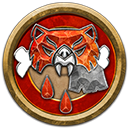 Barbarian The cities and towns of the cradle are no stranger to feats of raw strength, but there isn’t much of a calling for the traditional life of a barbarian tribe. That said, there are a few known settlements in some of the less tamed reaches of the mountains, ravines, and valleys where the inhabitants live a bit more of a “primitive” life than those of the cities and farmlands as believers of the animal and or spirit instincts There aren’t a lot of known followers of the dragon or giant instincts. Adventuring barbarians might find their way of life more suited for life in the misty swamps, the empty desert, or perhaps working with the rangers to the north.
Barbarian The cities and towns of the cradle are no stranger to feats of raw strength, but there isn’t much of a calling for the traditional life of a barbarian tribe. That said, there are a few known settlements in some of the less tamed reaches of the mountains, ravines, and valleys where the inhabitants live a bit more of a “primitive” life than those of the cities and farmlands as believers of the animal and or spirit instincts There aren’t a lot of known followers of the dragon or giant instincts. Adventuring barbarians might find their way of life more suited for life in the misty swamps, the empty desert, or perhaps working with the rangers to the north.
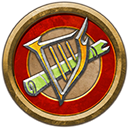 Bard Bards are gonna bard. While Marathis’ Cradle isn’t known or acclaimed for its teaching or artistic institutes, anywhere there is coin to be had for singing a song, you are going to find a bard. Almost all the bards you meet have polymath as their primary muse, but it shouldn’t be difficult to find a maestro or two in the big cities. You may need to travel to the cities or settlements of the desert or swamp to find an enigma muse. Adventuring bards are … let’s face it, they don’t need a rhyme nor a reason to be where they are found. You do you, bard.
Bard Bards are gonna bard. While Marathis’ Cradle isn’t known or acclaimed for its teaching or artistic institutes, anywhere there is coin to be had for singing a song, you are going to find a bard. Almost all the bards you meet have polymath as their primary muse, but it shouldn’t be difficult to find a maestro or two in the big cities. You may need to travel to the cities or settlements of the desert or swamp to find an enigma muse. Adventuring bards are … let’s face it, they don’t need a rhyme nor a reason to be where they are found. You do you, bard.
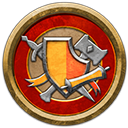 Champion One of the bylaws that all the cities in The Cradle abide by, is that each City Guard includes in its leadership champions (paladins) of Erastil and Iomedae to help ensure that the city remembers to protect the citizens both inside and outside the walls. Champions (redeemers or liberators) of Cayden, Desna, and Sarenrae are more likely found performing duties closer to the populous, and are the champions most likely found in the smaller settlements. Adventuring champions are welcome anywhere their deity is worshipped and anywhere they do good works for the people.
Champion One of the bylaws that all the cities in The Cradle abide by, is that each City Guard includes in its leadership champions (paladins) of Erastil and Iomedae to help ensure that the city remembers to protect the citizens both inside and outside the walls. Champions (redeemers or liberators) of Cayden, Desna, and Sarenrae are more likely found performing duties closer to the populous, and are the champions most likely found in the smaller settlements. Adventuring champions are welcome anywhere their deity is worshipped and anywhere they do good works for the people.
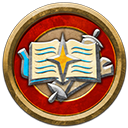 Cleric Clerics are another group that is found throughout most of the region. The desert sees less clerics simply due to the lack of population, while the northern forest has more druids among the population than clerics. With relative peace, cloistered clerics far outnumber the warpriests in the region. Adventuring clerics are just as welcome as champions, if not more so for cloistered clerics due to the perception that they are less militant.
Cleric Clerics are another group that is found throughout most of the region. The desert sees less clerics simply due to the lack of population, while the northern forest has more druids among the population than clerics. With relative peace, cloistered clerics far outnumber the warpriests in the region. Adventuring clerics are just as welcome as champions, if not more so for cloistered clerics due to the perception that they are less militant.
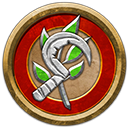 Druid Druids are an integral part of the balance of life and civilization in Marathis’ Cradle. Little, if any, expansion is done without their knowledge and consent. They don’t tend to congregate, but that doesn’t mean their numbers are low or that they aren’t around. Wild druids are generally not encountered by “civilized” citizens, but can often be found hunting with the Rangers of the northern forests. Animal and leaf druids are the more commonly encountered, while the storm druids are quite often the leaders in the region, although they generally spend the majority of their time tending to internal druidic issues or other unknown threats. Adventuring druids are almost always accepted with respect in all corners of The Cradle.
Druid Druids are an integral part of the balance of life and civilization in Marathis’ Cradle. Little, if any, expansion is done without their knowledge and consent. They don’t tend to congregate, but that doesn’t mean their numbers are low or that they aren’t around. Wild druids are generally not encountered by “civilized” citizens, but can often be found hunting with the Rangers of the northern forests. Animal and leaf druids are the more commonly encountered, while the storm druids are quite often the leaders in the region, although they generally spend the majority of their time tending to internal druidic issues or other unknown threats. Adventuring druids are almost always accepted with respect in all corners of The Cradle.
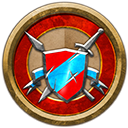 Fighter Fighters are the backbone of the militias and armies (which are usually just made from merging militias). They are also just as likely to be a thug or bandit as a rogue, and can even make a quite capable Hunter if they were so inclined. They are more common than bards, and adventurers are generally assumed to be fighters until they prove otherwise, which is, sadly quite often what adventurers are known for … proving themselves trouble. To sum up, fighters are everywhere you find people in The Cradle, and some places you probably shouldn’t.
Fighter Fighters are the backbone of the militias and armies (which are usually just made from merging militias). They are also just as likely to be a thug or bandit as a rogue, and can even make a quite capable Hunter if they were so inclined. They are more common than bards, and adventurers are generally assumed to be fighters until they prove otherwise, which is, sadly quite often what adventurers are known for … proving themselves trouble. To sum up, fighters are everywhere you find people in The Cradle, and some places you probably shouldn’t.
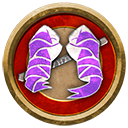 Monk Monks, like fighters, are really just people with some specialized combat training. Aside from a small group of monks that teach their own form of meditation in the gnomish dream caverns, the only formalized monastery in the region can be found far to the east, where the desert sands blast clean the sheer cliffs that mark the eastern boundaries of The Cradle. Little is known about the Temple of the Setting Sun, but those that encounter them have never had a negative thing to say. Adventuring monks cause no more fuss than any other visitor from outside the region, and a local adventuring monk might just be a celebrity!
Monk Monks, like fighters, are really just people with some specialized combat training. Aside from a small group of monks that teach their own form of meditation in the gnomish dream caverns, the only formalized monastery in the region can be found far to the east, where the desert sands blast clean the sheer cliffs that mark the eastern boundaries of The Cradle. Little is known about the Temple of the Setting Sun, but those that encounter them have never had a negative thing to say. Adventuring monks cause no more fuss than any other visitor from outside the region, and a local adventuring monk might just be a celebrity!
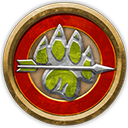 Ranger The rangers of the north, The Hunters of The Hunting Grounds, are a common enough sight in most settlements that wearing their cloak is often enough to keep prying eyes from following their activities, a fact that has not gone unnoticed by some of the more nefarious types. Coincidentally, rangers with the outwit edge are often called upon to hunt those that hide behind the cloak of a Hunter. Those specializing in flurry are often the ground troops in any mobilization while those specializing in precision are most often tasked with leading hunting expeditions. Adventuring rangers should be at home in all but the most urban districts of the largest cities.
Ranger The rangers of the north, The Hunters of The Hunting Grounds, are a common enough sight in most settlements that wearing their cloak is often enough to keep prying eyes from following their activities, a fact that has not gone unnoticed by some of the more nefarious types. Coincidentally, rangers with the outwit edge are often called upon to hunt those that hide behind the cloak of a Hunter. Those specializing in flurry are often the ground troops in any mobilization while those specializing in precision are most often tasked with leading hunting expeditions. Adventuring rangers should be at home in all but the most urban districts of the largest cities.
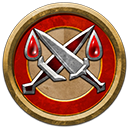 Rogue Rogues, like bards, are gonna rogue. Ruffians are usually found in your smaller settlements and villages, working a simple bandits. Scoundrels are more common in the roadside taverns and stopover points than small towns, but also make their homes in the bigger cities. But in the cities, thieves are the ones you need to look out for if you have attained wealth and wish to keep it. While each population center has its crime, the smallest thorps aren’t likely to have cause for alarm and only the largest cities are likely to have a true guild, such as the Water Lillies in Lakeside Proper. Adventuring rogues are probably fine, provided they keep don’t advertise any illegal skillsets.
Rogue Rogues, like bards, are gonna rogue. Ruffians are usually found in your smaller settlements and villages, working a simple bandits. Scoundrels are more common in the roadside taverns and stopover points than small towns, but also make their homes in the bigger cities. But in the cities, thieves are the ones you need to look out for if you have attained wealth and wish to keep it. While each population center has its crime, the smallest thorps aren’t likely to have cause for alarm and only the largest cities are likely to have a true guild, such as the Water Lillies in Lakeside Proper. Adventuring rogues are probably fine, provided they keep don’t advertise any illegal skillsets.
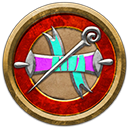 Sorcerer Sorcerers are quite often treated like druids, wielders of respected power … as long as they don’t use it for personal gain. That’s when relationships sour and authorities might get involved. In the area, the predominant bloodline found is fey, with elemental and draconic a distant third and fourth. The other bloodlines are all but unheard of in natives of The Cradle. Adventuring sorcerers of all bloodlines are welcome, and even invited to the annual Gathering of the Magii, a festival to share information about families and powers, or just to meet other like minded souls. It is held in a different location each year to allow word of their group to better spread.
Sorcerer Sorcerers are quite often treated like druids, wielders of respected power … as long as they don’t use it for personal gain. That’s when relationships sour and authorities might get involved. In the area, the predominant bloodline found is fey, with elemental and draconic a distant third and fourth. The other bloodlines are all but unheard of in natives of The Cradle. Adventuring sorcerers of all bloodlines are welcome, and even invited to the annual Gathering of the Magii, a festival to share information about families and powers, or just to meet other like minded souls. It is held in a different location each year to allow word of their group to better spread.
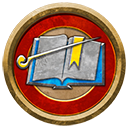 Wizard Wizards are treated as a hyrbid of an alchemist and a sorcerer. They wield great power, but are more often just a tool or a means to an end. That said, there are three colleges in The Cradle where wizards can be taught the basics before they are then forced to find a mentor on their own to further their studies. This means that the most commonly found wizard is a low level universalist, while the more powerful wizards are almost always a specialist. At the last census, there was still at least one wizard teaching each of the primary schools of magic to graduates of the colleges. Traveling wizards are likely treated a little like rockstars by the local, low grade univeralist wizards.
Wizard Wizards are treated as a hyrbid of an alchemist and a sorcerer. They wield great power, but are more often just a tool or a means to an end. That said, there are three colleges in The Cradle where wizards can be taught the basics before they are then forced to find a mentor on their own to further their studies. This means that the most commonly found wizard is a low level universalist, while the more powerful wizards are almost always a specialist. At the last census, there was still at least one wizard teaching each of the primary schools of magic to graduates of the colleges. Traveling wizards are likely treated a little like rockstars by the local, low grade univeralist wizards.
Please continue to join us at our Discord server https://discord.gg/Rt79BAj.


